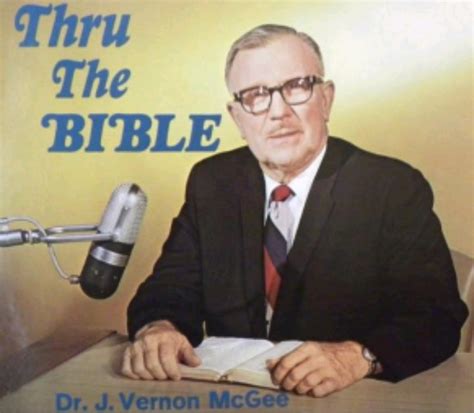A Quote by Criss Jami
If Christ be a fraud, he was among the most peculiar yet brilliant of frauds in saying that only he was the way, the truth, and the life. This is the importance of grace - some people think that simply being nice and not harming others is morality; others think that following rules and tithing are morality. But without Christ, all moral beliefs ultimately boil down to the one sin which perpetually rails against the concept of grace: man's lawful, religious, and futile attempt at establishing his own righteousness.
Quote Topics
Against
Among
Attempt
Being
Being Nice
Beliefs
Boil
Brilliant
Christ
Concept
Down
Establishing
Following
Following Rules
Fraud
Futile
Grace
Harming
Harming Others
His
Importance
Lawful
Life
Man
Moral
Moral Beliefs
Morality
Most
Nice
Only
Others
Own
Peculiar
People
Rails
Religious
Righteousness
Rules
Saying
Simply
Sin
Some
Some People
Think
Tithing
Truth
Ultimately
Way
Which
Without
Related Quotes
The only man who has the right to say that he is justified by grace alone is the man who has left all to follow Christ. Such a man knows that the call to discipleship is a gift of grace, and that the call is inseparable from the grace. But those who try to use this grace as a dispensation from following Christ are simply deceiving themselves.
Christ will be master of the heart, and sin must be mortified. If your life is unholy, then your heart is unchanged, and you are an unsaved person. The Savior will sanctify His people, renew them, give them a hatred of sin, and a love of holiness. The grace that does not make a man better than others is a worthless counterfeit. Christ saves His people, not IN their sins, but FROM their sins. Without holiness, no man shall see the Lord.
Let me make it quite clear that when Christians say the Christ-life is in them, they do not mean simply something mental or moral. When they speak of being "in Christ" or of Christ being "in them", this is not simply a way of saying that they are thinking about Christ or copying Him. They mean that Christ is actually operating through them; that the whole mass of Christians are the physical organism through which Christ acts--that we are His fingers and muscles, the cells of His body.
Cheap grace is the idea that "grace" did it all for me so I do not need to change my lifestyle. The believer who accepts the idea of "cheap grace" thinks he can continue to live like the rest of the world. Instead of following Christ in a radical way, the Christian lost in cheap grace thinks he can simply enjoy the consolations of his grace.
There are two sorts of hypocrites: ones that are deceived with their outward morality and external religion; and the others are those that are deceived with false discoveries and elevation; which often cry down works, and men's own righteousness, and tlak much of free grace, but at the same time make a righteousness of their discoveries and of their humiliation, and exalt themselves to heaven with them.
Fallen man is free to choose what he desires, but because his desires are only wicked he lacks the moral ability to come to Christ. As long as he remains in the flesh, unregenerate, he will never choose Christ. He cannot choose Christ precisely because he cannot act against his own will. His fall is so great that only the effectual grace of God working in his heart can bring him to faith.
Cheap grace is the grace we bestow on ourselves. Cheap grace is the preaching of forgiveness without requiring repentance, baptism without church discipline, Communion without confession.... Cheap grace is grace without discipleship, grace without the cross, grace without Jesus Christ, living and incarnate.
When the New Testament speaks about the fullness of grace which we find in Christ, it does not mean only forgiveness, pardon and justification. Christ has done much more for us. He died for us, but he also lived for us. Now he has sent his own Spirit to us so that we might draw on his strength. He grew in grace, and when we draw on his power we shall likewise grow in grace.
When I hear Christians say, "I don't do this, and I don't do that, and I am following a set of rules," I immediately recognize that they know very little about the grace of God. They are trying to live the Christian life in their own strength. But Paul says, "Be strong in the grace that is in Christ Jesus."
The person who is living by grace sees this vast contrast between his own sins against God and the offenses of others against him. He forgives others because he himself has been so graciously forgiven. He realizes that, by receiving God’s forgiveness through Christ, he has forfeited the right to be offended when others hurt him.
Discipleship means adherence to Christ and, because Christ is the object of that adherence, it must take the form of discipleship. An abstract theology, a doctrinal system, a general religious knowledge of the subject of grace or the forgiveness of sins, render discipleship superfluous, and in fact exclude any idea of discipleship whatsoever, and are essentially inimical to the whole conception of following Christ....Christianity without the living Christ is inevitably Christianity without discipleship, and Christianity without discipleship is always Christianity without Christ.
If we let ourselves believe that man began with divine grace, that he forfeited this by sin, and that he can be redeemed only by divine grace through the crucified Christ, then we shall find peace of mind never granted to philosophers. He who cannot believe is cursed, for he reveals by his unbelief that God has not chosen to give him grace.
You see how many are the benefits of baptism, and some think its heavenly grace consists only in the remission of sins, but we have enumerated ten honors [it bestows]! For this reason we baptize even infants, though they are not defiled by [personal] sins, so that there may be given to them holiness, righteousness, adoption, inheritance, brotherhood with Christ, and that they may be his [Christ's] members
Let it simply be asked where is the security for property, for reputation, for life, if the sense of religious obligation deserts the oaths, which are the instruments of investigation in the Courts of Justice? And let us with caution indulge the opposition, that morality can be maintained without religion. Whatever may be conceded to the influence of refined education on minds of peculiar structure, reason and experience both forbid us to expect that National morality can prevail in exclusion of religious principle.
Self-righteousness exclaims, "I will not be saved in God's way; I will make a new road to heaven; I will not bow before God's grace; I will not accept the atonement which God has wrought out in the person of Jesus; I will be my own redeemer; I will enter heaven by my own strength, and glorify my own merits." The Lord is very wroth against self-righteousness. I do not know of anything against which His fury burneth more than against this, because this touches Him in a very tender point, it insults the glory and honor of His Son Jesus Christ.



































